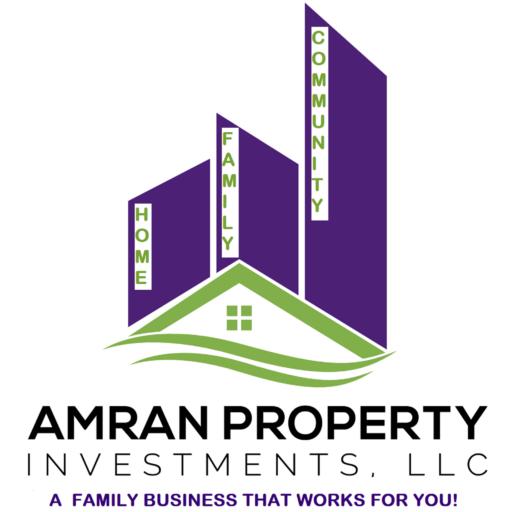 Photo by cottonbro studio
Photo by cottonbro studio
Inheriting a home in Winston Salem can be both a blessing and a source of stress. Did you inherit a property that you’re now thinking about selling? The sentimental value tied to the property can make it challenging to decide on the right price, but getting it right is crucial for a successful sale. Proper pricing isn’t just about numbers; it’s about recognizing the emotional weight of the inheritance and the financial impact on your future. Balancing these aspects while navigating the local real estate market will ensure you honor the home’s legacy and secure a fair return. An inherited property can be a wonderful gift from a loved one who has passed on, it can oftentime be a costly burden. So selling it makes sense and allows you to use the gifted equity for some other purpose. But selling an inherited property may not come easy to you, especially if you haven’t sold a property in a while. This guide will help you price your inherited home accurately, addressing common pitfalls and providing practical tips and valuable information to make this transitional period smoother.
So here’s how to price your inherited home in North Carolina for sale:
Tip #1: Price Competitively To Sell Quickly
Some people price their inherited property at an amount they think the market might pay for the house. However, there are many factors that go into this price and one of the biggest considerations is: how fast do you want to sell? Selling through an agent “on the market” can take months, and you’ll have to pay for the house and maintain the property the entire time. That can be costly and can eat into the higher price.
Many property owners quickly learn that they’re almost better off to price slightly lower for a faster sale… they might get less for the house but they also pay less on repairs, carrying costs, effort, and time, so it’s ultimately a trade-off that might turn out to be a total wash.
Tip #2: Avoid Pricing Based On Fond Memories Or Emotion
One of the biggest challenges that property owners of inherited property face when trying to price their property for sale is separating the happy memories from the true value of the house. The house might be worth a certain amount on the market but you may have such fond memories of growing up in the house or of happy times in the house that you accidentally use that emotion to increase the price. (This is VERY common.)
A better approach would be to work with a real estate company and find out what they can offer you, and recognize that the price might be lower than you were expecting… not because the house isn’t worth as much but because your wonderful memories have accidentally inflated the price!
Tip #3: Build In Discounts For Repairs
If you inherited the property from a loved one who had lived in the property for many years then you might find out that the property needs some repairs. You could choose to do this work yourself and then ask for a higher price but why do that when you could save yourself the time and effort (and what you’d have to pay for equipment, supplies, or a contractor) and instead just ask for less and give a “repair discount”. That way you avoid the hassle of the work, and you still come out the same financially.
Understanding the Value of Your Inherited Home
When you inherit a home, one of the initial hurdles you’ll face is understanding its value. This is essential because the value affects everything from tax responsibilities to the eventual selling price. A comprehensive understanding involves two major steps: assessing the condition of the property and analyzing the local real estate market.
Assessing the Condition of the Property
Thoroughly assess the physical condition of your inherited home. The state of the property plays a significant role in its value. Here’s how you can approach this:
- Exterior Inspection:
- Roof and Gutters: Check for missing shingles, leaks, and the condition of gutters.
- Foundation: Look for any cracks or signs of settling.
- Paint and Siding: Note any peeling paint or damage to siding.
- Interior Inspection:
- Walls and Ceilings: Search for cracks, water damage, and mold.
- Floors: Check for uneven surfaces, stains, or worn-out areas.
- Plumbing and Electrical: Ensure there are no leaks, dripping faucets, or electrical issues.
- Mechanical Systems:
- HVAC: Assess the age and functionality of heating and cooling systems.
- Hot Water Heater: Look for any signs of wear or inefficiency.
- Upgrades and Repairs:
- List any major repairs or upgrades the home may need. These could include kitchen or bathroom remodels, which can significantly increase the property’s value.
By understanding the condition of the home, you can estimate how much you might need to invest in repairs or renovations, which will help you price the home accurately.
Analyzing the Local Real Estate Market
After assessing the property condition, analyze the local real estate market. The real estate market in Winston Salem can fluctuate, and understanding its current state is crucial.
- Research Recent Sales:
- Investigate recent sales of similar homes in your neighborhood as suggested by this detailed guide. Look for homes with similar square footage, age, and condition.
- Check Market Trends:
- Evaluate the current market trends using resources like Rocket Homes. Are home prices rising or falling? Understanding these trends can give you insight into the best time to sell.
- Average Days on Market:
- Determine how long homes are typically on the market in Winston Salem through this housing market report. This can inform whether you might need to price your home more competitively for a quicker sale.
- Local Economic Factors:
- Consider the local economic conditions. Are there new businesses or schools being built that might increase demand? Resources like GoodEgg Investments provide insights into the economic health and development plans in Winston Salem.
Understanding both the condition of your inherited home and the current state of the local real estate market will guide you in setting a fair and competitive price. By taking these steps, you ensure that you’re making informed decisions that honor the value of your inheritance and potentially maximize your financial return.
Consulting with Professionals
When pricing an inherited home for sale, seeking professional advice can make a world of difference. Professionals like real estate agents, property appraisers, and financial advisors each bring unique insights and expertise, helping you set a price that is fair and appealing to buyers while considering all financial implications.
Real Estate Agents
 Photo by LinkedIn Sales Solutions
Photo by LinkedIn Sales Solutions
Hiring a local real estate agent can be one of the best decisions you make when pricing your inherited home. Real estate agents have extensive knowledge of the local market and can provide a comparative market analysis (CMA) to help you determine the right price.
- Local Market Expertise: Real estate agents understand the nuances of the Winston Salem market, such as neighborhood trends, school districts, and local amenities. They can compare your home to recently sold properties and current listings to set a competitive price.
- Professional Networking: Agents can leverage their network to find potential buyers quickly. They also work with other professionals, such as home inspectors and contractors, to address issues that might impact your home’s value as mentioned by SoldNest.
- Negotiation Skills: An experienced agent can negotiate with buyers on your behalf, ensuring that you get the best possible price for your home. They protect your interests and navigate any legal complexities that may arise.
Property Appraisers
 Photo by Binyamin Mellish
Photo by Binyamin Mellish
Property appraisers play a crucial role in determining the market value of your inherited home. They provide a professional assessment based on various factors.
- Unbiased Valuation: An appraiser gives an impartial value of your property by considering its location, size, condition, and comparable sales. This ensures you have a realistic price in mind when listing your home as detailed by Investopedia.
- Detailed Report: The appraisal report outlines the home’s condition and any issues that might affect its value. This can be useful for making informed decisions about necessary repairs or renovations.
- Essential for Loans: If potential buyers need financing, lenders will often require an appraisal to approve the mortgage. Having an accurate and recent appraisal can streamline the selling process.
Financial Advisors
Considering the tax implications and financial considerations of selling an inherited home, consulting a financial advisor can be immensely beneficial.
- Tax Guidance: Inheriting a home comes with potential tax implications, including capital gains tax when you sell the property. A financial advisor can help you understand these taxes and explore ways to minimize your liability as highlighted by SmartAsset.
- Financial Planning: Advisors can assist in planning how to use the proceeds from the sale. Whether you want to invest, save for retirement, or pay off debts, they provide tailored advice to optimize your financial future.
- Estate Planning: If the inherited property is part of a larger estate, an advisor can help ensure that the estate is managed effectively and that you comply with all legal requirements.
By consulting with these professionals, you can navigate the complexities of pricing your inherited home with confidence, ensuring you honor its value and legacy while securing the best possible financial outcome.
By seeking guidance from real estate agents, property appraisers, and financial advisors, you arm yourself with the knowledge needed to make informed decisions, effectively managing the intricacies of selling an inherited home.
Pricing Strategies
Determining the right price for your inherited home in Winston Salem can significantly influence how fast it sells and how much profit you make. Let’s explore various pricing strategies to help you make a well-informed decision.
Competitive Pricing
 Photo by Curtis Adams
Photo by Curtis Adams
Setting a competitive price means pricing your home similarly to comparable homes in Winston Salem. This strategy ensures your home is appealing to buyers while still fetching a good price.
- Research Comparable Properties: Look at recently sold homes in your area with similar features such as size, age, and condition. Tools like Zillow can show you the sales prices of these homes.
- Adjust for Differences: If your home has unique features or needs certain repairs, adjust the price accordingly.
- Consult Local Agents: Local real estate agents can provide a Comparative Market Analysis (CMA) to help set a competitive price.
Competitive pricing helps attract more buyers and can result in multiple offers, potentially driving up the final sales price.
Quick Sale Pricing
Pricing your home for a quick sale involves setting a lower price to attract more buyers quickly.
- Advantages:
- Faster Sale: Your home is likely to sell faster, eliminating holding costs such as taxes, insurance, and maintenance.
- More Interest: A lower price can attract more buyers, potentially leading to a bidding war.
- Disadvantages:
- Less Profit: You might sacrifice some profit by selling at a lower price.
- Perception of Issues: Potential buyers might think there’s something wrong with the home due to the lower price.
Pricing for a quick sale might be suitable if you need to sell the home urgently, but it’s important to balance speed and profitability.
High Listing Price
Setting a high listing price might seem tempting, especially if you’re hoping to maximize profit. However, this approach carries certain risks that need to be managed.
Potential Outcomes of High Listing Price:
- Longer Time on Market: Overpriced homes can sit on the market longer, leading to increased holding costs and potential price reductions.
- Reduced Buyer Interest: Buyers might avoid homes they perceive as overpriced, reducing the number of offers.
- Price Adjustments: Eventually, you might need to lower the price to attract buyers, which can make the property seem less desirable.
Managing Expectations:
- Be Realistic: Understand that setting a high price doesn’t necessarily mean getting offers at that price.
- Keep an Open Mind: Be open to feedback and willing to adjust the price if the market isn’t responding.
- Consult Experts: Work with a real estate agent to gauge whether a high listing price is justifiable based on market conditions.
Choosing the right pricing strategy depends on your goals, timeframe, and market conditions. Whether aiming for a quick sale, a competitive edge, or testing a higher price, understanding these strategies will help you make an informed decision.
Marketing Your Inherited Home
Marketing your inherited home effectively is key to attracting potential buyers and securing a good sale price. By leveraging both online and offline methods, you can ensure your home gets the attention it deserves.
Online Listings
 Photo by Tima Miroshnichenko
Photo by Tima Miroshnichenko
In today’s digital age, online listings are crucial for marketing any home. Most buyers start their home search online, so presenting your property in the best possible light is essential.
- High-Quality Photos: Clear, bright photos can showcase your home’s best features. Invest in professional photography to capture well-lit images of each room and the exterior.
- Detailed Descriptions: Write engaging and informative descriptions that highlight key aspects of the home. Mention unique features, recent upgrades, and the benefits of the neighborhood.
- Virtual Tours: Consider adding virtual tours or video walkthroughs to give potential buyers a more immersive experience. This can set your listing apart from others.
Using high-quality visuals and comprehensive descriptions can make your online listing stand out, attracting more buyers and increasing the chances of a successful sale.
Open Houses and Showings
While online listings can draw interest, open houses and private showings are vital for giving buyers a firsthand look at your home.
- Prepare the Home: Before any showing, make sure the home is clean and clutter-free. Staging can help buyers envision themselves living there. Simple touches like fresh flowers and pleasant scents can also create a welcoming environment.
- Schedule Strategically: Plan open houses during weekends or evenings when potential buyers are likely to be available. Offering flexible showing times can accommodate more interested parties.
- Engage with Buyers: During open houses, engage with visitors to answer questions and provide additional information. Highlight the home’s selling points and be prepared to discuss the neighborhood and local amenities.
By conducting well-prepared open houses and showings, you can make a strong impression on potential buyers, increasing their interest and likelihood of making an offer.
For more detailed guidance, you might find this step-by-step guide to selling your inherited home helpful.
Marketing your inherited home successfully involves both strong online presence and effective in-person strategies. Use these tips to ensure your home gets the attention it deserves and attracts the right buyers.
Legal and Financial Considerations
Navigating the sale of an inherited home involves understanding various legal and financial factors. Here, we break down the key considerations to help you prepare for this complex process.
Probate Process
 Photo by Expect Best
Photo by Expect Best
When you inherit a home, the probate process is often the first step you encounter. Probate is the legal procedure that confirms the validity of a will and the executor’s authority to distribute assets. Here’s how it impacts selling an inherited home:
- Court Supervision: Probate ensures that the deceased’s debts and taxes are paid before the inheritance is distributed. This can sometimes slow down the sale process.
- Executor’s Role: The executor manages the estate, pays off debts, and handles the sale of the property. They must adhere to the will’s instructions and state probate laws.
- Time Frame: The probate process can vary in length. In some states, it may take several months to over a year, depending on the estate’s complexity.
Understanding the probate process can help you anticipate potential delays and avoid complications during the sale. For more detailed insights, consider this comprehensive guide on probate.
Tax Implications
Selling an inherited home comes with several tax implications that you need to be aware of:
- Capital Gains Tax:
- When selling an inherited home, you might be subject to capital gains tax. The capital gain is the difference between the sale price and the “stepped-up basis” (the home’s value at the time of inheritance).
- For example, if the home was valued at $200,000 when you inherited it and you sell it for $250,000, your capital gain would be $50,000. This is the amount subject to taxation.
- Exemptions and Deductions:
- There are certain exemptions and deductions you may qualify for, which can help reduce your taxable income. Consulting with a tax professional can help you navigate these options.
- Property Taxes:
- You’ll need to keep up with ongoing property taxes until the home is sold. Unpaid property taxes can lead to liens, complicating the sale process.
- Inheritance Tax:
- Depending on the state, you might also face inheritance tax. It’s crucial to review local laws and regulations to understand your tax liabilities fully.
By being informed about these tax implications, you can plan strategically and avoid unexpected expenses. For more helpful tips on managing taxes when selling an inherited home, see this detailed article on selling an inherited house.
Being prepared for the legal and financial considerations when selling an inherited property in Winston Salem will help you navigate the process smoothly and maximize your financial outcomes.
Conclusion
Properly pricing your inherited home in Winston Salem is fundamental to achieving a successful sale. This involves assessing the property’s condition, understanding the local real estate market, and consulting with professionals like real estate agents, property appraisers, and financial advisors.
Taking these steps ensures you not only honor the legacy of your inherited home but also secure a fair and beneficial financial return. Don’t hesitate to seek professional guidance to navigate this complex process confidently. Start today by reaching out to experienced real estate agents and financial advisors to price your inherited home correctly and make informed decisions for a successful sale.
If you’ve inherited a property and you’re planning to sell it, make sure you read this blog post for 3 tips about how to price your inherited home in North Carolina for sale…
Summary
An inherited house can be a lot of work so if you’re thinking of selling it, you’re certainly not alone. But how do you price an inherited house? These tips will guide you on how to price your inherited home in North Carolina for sale.
Why not bypass all the work and cost of selling through an agent and instead get in touch with us today about selling your inherited property to us here at Amran Property Investments, LLC? Just call us at (336) 715-3931 or click here and enter your information in the form.
